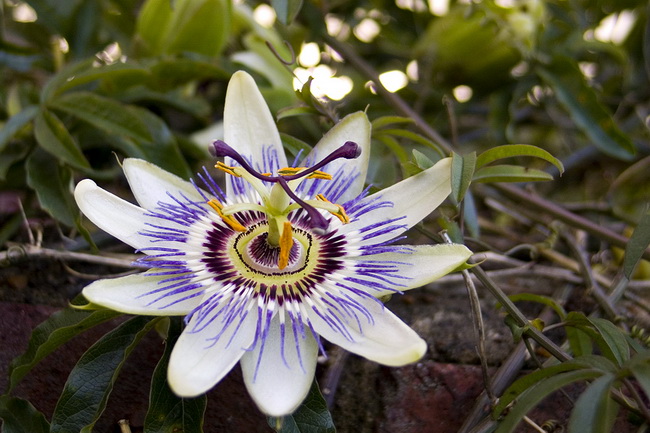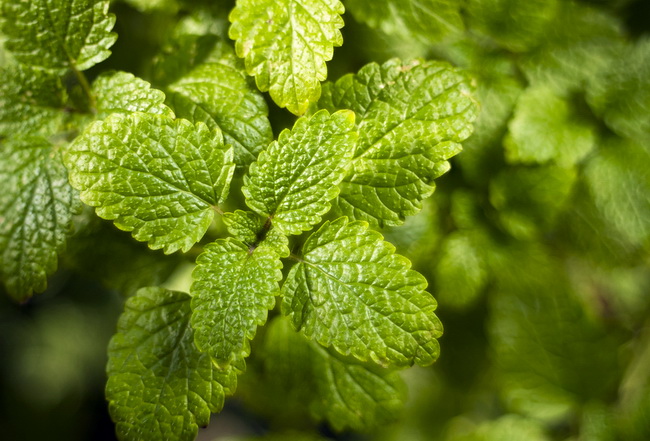- Make It Yourself Lavender Heart-Shaped Bath Bombs!
- 20 Things You Never Knew About “Down There”
- 12 Best Foods For Those Suffering From Arthritis Pain
- 12 Personal Hygiene Mistakes Almost Everyone Makes (Mom Never Told You About #4!)
- 15 Medicinal Plants And Herbs From The Cherokee People
- 12 Mind-Blowing Benefits Of Drinking Coconut Water During Pregnancy
- 12 Outstanding Winter Foods That Won’t Fatten You Up Like A Christmas Turkey
15 Herbs To Increase Your Feelings Of Happiness (Got To Love #8)

Photo credit: bigstock.com
Western medicine draws a strange and unnatural line between our emotional state and a physical illness, but there is absolutely no line between body and mind. Unfortunately, taking care of our emotional and mental well-being is often the last thing on our list of priorities. Most people think that if they mention emotional or mental issues, they somehow are weak and “less” than other people.
So we go on with our lives, telling ourselves that what we feel (or don’t feel) is no big deal, or not important, or that we should “get over it.” When people can’t “get over it,” they turn to their doctor or psychiatrist, whose solution is usually chemical pharmaceutical medications. Often, the side effects of these drugs only make things worse.
You can improve your own feelings of happiness and well-being without chemical drugs. You can use herbs from Mother Nature to lift your spirits and keep your brain functioning properly. Putting forth the effort to find the herbs that work best for you so that you can lead the happiest life possible is more than worth the trouble. Making yourself happy and looking after your own well-being not only affects your quality of life, and but the lives of all those with whom you come in contact every day.
1. Brahmi
This is an Ayurvedic herb that has been used for centuries as a brain tonic and as a means of improving feelings of well-being. Brahmi (bacopa monnieri) improves intellect and can increase memory. In daily doses of 10 to 20 mg, brahmi reduces stress and relieves feelings of anxiety.
2. Chamomile
This is perhaps one of the most commonly used herbs for calming both mind and body. Chamomile tea is well-known for being the perfect relaxing tea before bed to help induce deep sleep. Just one cup of chamomile tea can help so much when it comes to easing stress and anxiety. Chamomile will also improve digestion, soothe the nervous system, improve the immune system — and ladies, it will also reduce those painful menstrual cramps.
3. Gotu Kola
This peripheral vasodilator that relaxes the nerves is known for calming anxiety attacks, depressive episodes, improving cognitive function, and helping people deal with stress. Gotu kola (centella asiatica) also has antispasmodic and antiseptic compounds.
4. Calamus Root
This little-known root improves concentration levels and memory by stimulating both mind and body. This is the perfect herb for helping you see things from a clearer perspective so that stressful problems can be resolved. Calamus root can calm the racing mind while helping improve motivation. Calamus root has antimicrobial, antioxidant, anti-spasmodic, and anti-epileptic compounds that can even help those who suffer from seizures and epilepsy.
5. Valerian
Like chamomile, this herb has been used for centuries to calm the mind, relax the nervous system, and induce a deep, peaceful sleep. Valerian (valeriana officinalis) is generally consumed as a tea, but it is also sold in supplement form.
Continue to Page 2

Photo credit: bigstock.com
6. St. John’s Wort
This herb has been used for centuries as a natural antidepressant. St. John’s Wort has successfully been used as a replacement for prescription antidepressants for those with mild to moderate cases of depression. This herb sometimes affects sleep patterns, so you would be wise to consult with your doctor or an herbalist before consuming this herb. If you experience unwanted side effects, then choose another herb. St. John’s Wort can also help cramps, bruises, inflammation, and muscle spasms.
7. Passionflower
This beautiful flowering plant has very mild narcotic compounds that encourage deep, restful sleep. In addition to helping most people fall asleep, this herb can also help daytime anxiety attacks. Passionflower (passiflora) can be consumed as a tea, as a capsule, or as a tincture.
8. Cannabis
Cannabis, or cannabis oil, is perhaps the most effective way to reduce social anxiety and, when consumed regularly, it has been shown to be an exemplary tool for the relief of depression. Cannabis and cannabis oil has so many health benefits in addition to relieving depression and stress that it really is something that can help almost everyone. Cannabis can fight psychotic disorders, tumors, reduce inflammation, and stop seizures and neurodegeneration as well as stimulate new neurons in the brain. If cannabis isn’t legal in your area, perhaps it’s time to join the fight to make it legal.
9. Kava Kava
This is an excellent herb for the relief of anxiety and feelings of nervousness, especially in social settings. The native Polynesians encouraged the ceremonial drinking of kava kava to foster more social interactions during community functions. Kava kava is a very mild sedative which can reduce feelings of nervous tension and anxiety while still allowing friendly conversation. Kava kava has antispasmodic compounds and pain relievers. This makes kava kava the perfect remedy for migraines and insomnia, plus skin, nerve, or muscular problems that result from pain.
10. Oat Straw
Oat straw can help treat feelings of anxiety, but it is also very effective in the treatment of shingles, migraines, and even epilepsy. Oat straw is especially helpful when it comes to calming the nerves of those who are trying to detox from alcohol or drug addiction, and it is the perfect herbal supplement for those who are trying to curb nicotine cravings.
Continue to Page 3

Photo credit: bigstock.com
11. Panax Ginseng
This is a super adaptogenic herb that is often recommended for improving the mood as well as increasing attention span and improving memory. Ginseng is well known for improving energy levels and also lengthens mental endurance.
12. Lemon Balm
Lemon balm is so mild that doctors often recommend it even for children. This is a very safe, non-habit forming herb that is often used for feelings of depression, insomnia, nervousness, headaches, and anxiety. This is a strong sedative so use wisely, and never give lemon balm to children under 10 without your doctor’s consent. One little known fact about lemon balm is that it has powerful anti-viral compounds, so you might want to drink some lemon balm tea at the first sign of a cold or flu infection.
13. Yerba Mate
Yerba mate (ilex paraguariensis) is more of a shrub than an herb that eases depression by stimulating the mind. Speak to your doctor before consuming this herb to ensure that you are taking the right dose for your condition.
14. Siberian Ginseng
Siberian ginseng, like most other types of ginseng, is an adaptogenic herb which can improve concentration levels without the letdown that you can get from stimulants like coffee.
SEE ALSO: 10 Surprising Habits That Rob You of Happiness
15. Golden Root
Sometimes called roseroot or arctic root, golden root is often used to improve both mental and physical energy, memory and performance under stress. By improving mental energy, this herb helped many overcome feelings of melancholy and depression. This herb is considered by many to be the king when it comes to adaptogenic herbs. Golden root helps us to regulate neurological, physiological and immune responses to stress. Russians have used this root for eons to improve physical stamina and to adapt to environmental stress. Golden root improves the mood with no detectable levels of toxicity. This herb works by improving the body’s ability to make neurotransmitters such as dopamine and serotonin, which help to reduce stress levels and make us feel happier.
Of course, feeling happy can make us healthier, but it won’t make up for bad habits such as a poor diet, lack of exercise, lack of sleep, or excessive stress levels. Take care of both body and mind for true happiness that lasts a lifetime.
References:


































Rowie Truth
May 5, 2018 at 5:28 am
16. Aschwagandha